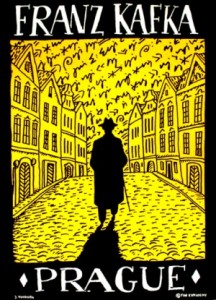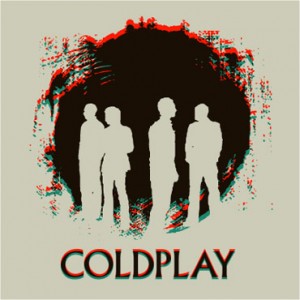 Ghosts are always unsure. That’s why they are ghosts: beings stuck in the spaces between worlds that, for all we know, are as many as there are stars. What of ghosts that try in vain to convince us that they are really dead? That is Kafka’s Hunter Gracchus. He died after a really bad fall in the woods. Thereafter, everything that followed seemed to have happened in the order one would expect. He lay there on the floor of the Black Forest, bled his life away, died, and the ship of death arrived. He left behind all his hunting gear, entered the boat, relaxed on the planking, and watched the boat recede from land, heading towards the place where all dead people go. But there was a little glitch. The helms man was distracted, so he took a wrong turn. And ever since, the Hunter Gracchus, has traveled through the waters of the world, stopping at ports and harbors, only to continue on in endless wandering, heading no where in particular. Is he in search of death? But how can one seek death after having died?
Ghosts are always unsure. That’s why they are ghosts: beings stuck in the spaces between worlds that, for all we know, are as many as there are stars. What of ghosts that try in vain to convince us that they are really dead? That is Kafka’s Hunter Gracchus. He died after a really bad fall in the woods. Thereafter, everything that followed seemed to have happened in the order one would expect. He lay there on the floor of the Black Forest, bled his life away, died, and the ship of death arrived. He left behind all his hunting gear, entered the boat, relaxed on the planking, and watched the boat recede from land, heading towards the place where all dead people go. But there was a little glitch. The helms man was distracted, so he took a wrong turn. And ever since, the Hunter Gracchus, has traveled through the waters of the world, stopping at ports and harbors, only to continue on in endless wandering, heading no where in particular. Is he in search of death? But how can one seek death after having died?
Maurice Blanchot, a postwar French writer, has made the point that contrary to what we think, death is the one act that is truly impossible. He does not think of the impossibility of death in the religious sense of a soul that lives on after the body dies. It is in the sense that death is not an end to existence since we die only to survive. And also that death is an endlessly deferred dream within we are trapped whether we are living, dead, or living dead. The Hunter Gracchus says of himself, “From being a hunter I’ve become a butterfly.” Whether hunter or butterfly, he will never cross the final frontier beyond which lay death.
In a song by Coldplay, titled 42, we encounter a similar figure, a dead person who is not quite sure if he is a ghost or not,  but who has nevertheless made it close to heaven but has, however, been refused entry. Instead of sailing endlessly from port to harbor like the hunter in Kafka’s story, he has somehow returned to the world of the living but lives right inside their heads. “Those who are dead are not dead, they are just living in our heads,” the first to lines of the song says. The idea that death is not the end of it all is not new. But that is if we think of the life that follows death as a form of transcendence. What if you give the dead back their bodies and imagine them dwelling in our heads? What does it mean to say that our heads are mausoleums, cemeteries of sorts for the dead who did not die at all? These dead that persists in our heads, are they merely memory? I doubt.
but who has nevertheless made it close to heaven but has, however, been refused entry. Instead of sailing endlessly from port to harbor like the hunter in Kafka’s story, he has somehow returned to the world of the living but lives right inside their heads. “Those who are dead are not dead, they are just living in our heads,” the first to lines of the song says. The idea that death is not the end of it all is not new. But that is if we think of the life that follows death as a form of transcendence. What if you give the dead back their bodies and imagine them dwelling in our heads? What does it mean to say that our heads are mausoleums, cemeteries of sorts for the dead who did not die at all? These dead that persists in our heads, are they merely memory? I doubt.
Photo Credits:
Kafka by Luc Devroye
Coldplay: Midwest Sports Fans
Listen to Coldplay’s 42








COMMENTS -
Reader Interactions